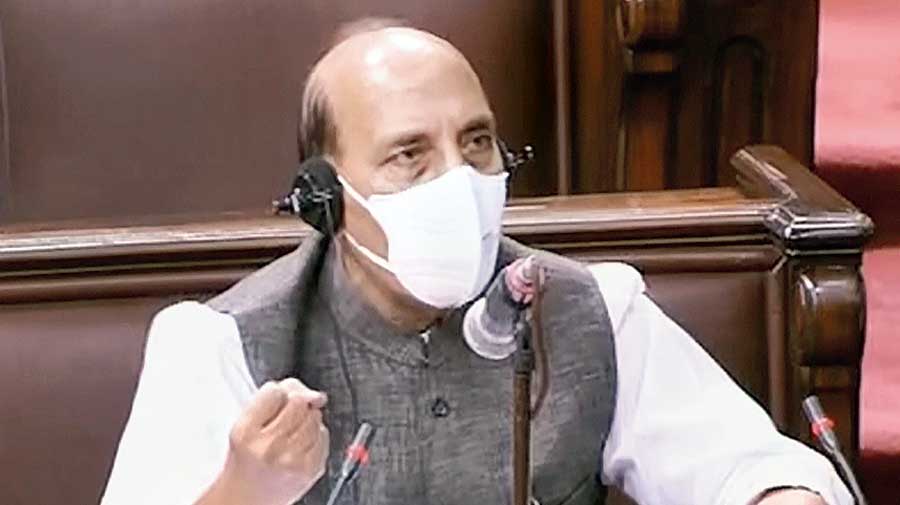In a veiled reference to China's aggressive military behaviour, Defence Minister Rajnath Singh on Thursday said exercising self-restraint in the conduct of activities and avoiding actions that may further complicate situation will go a long way in bringing sustained peace to the region.
He was speaking at the ASEAN Defence Ministers' Meeting-Plus (ADMM-Plus), a platform comprising 10-nation ASEAN (Association of Southeast Asian Nations) and its eight dialogue partners including India and China.
Chinese Defence Minister Wei Fenghe was among those who attended the virtual meeting, officials said.
In his address, Singh talked about "the current regional environment with visible strains", and appreciated the central role of ASEAN-led forums, including ADMM-Plus in promoting dialogue and engagement towards a pluralistic, cooperative security order in Asia.
"As we enhance mutual trust and confidence, exercising self-restraint in the conduct of activities and avoiding actions that may further complicate the situation, will go a long way in bringing sustained peace to the region," he said.
Singh's comments came amid the seven-month-long military standoff between India and China in eastern Ladakh and Beijing's increasingly expansionist behaviour in South China Sea and Indo-Pacific.
The defence minister also said that the ability of the grouping to collectively respond to challenges based on the fundamentals of freedom, inclusivity and openness in the region will define its future.
"Threats to the rules-based order, maritime security, cyber-related crimes and terrorism, just to name a few, remain the challenges that we need to address as a forum," Singh said at the virtual meeting.
The defence minister also talked about the outlook on the Indo-Pacific, saying it underscores the impetus to cultivate strategic trust and continuously promote ASEAN centrality in the regional architecture.
"The concepts of 'vasudhaive kutumbakam' 'the whole world is one family' and 'sarve bhavantu sukhinah' 'all be at peace' are the core of the Indian civilisation. Therefore, inclusivity, equality and openness are the principles underlining this concept," he said.
The defence minister also called for sustained efforts to address the threats of bio-terrorism, transnational trafficking and pandemics, and emphasised on building capacity to address shared security challenges.
"Our composition is another pillar of our strength as it includes defence ministries of 18 key countries that are major stakeholders in the regional security dynamic," he said.
In his address, Singh also underlined the need for confronting the challenges emerging from the coronavirus pandemic.
"Amongst the new challenges that have emerged, COVID-19 has changed the world and left us many hurdles to overcome. Unfortunately, the disruptive effect of the pandemic is still unfolding," the defence minister said.
"The challenge is, therefore, to make sure that the world economy moves on the path of recovery and when it does gather steam, to ensure that the recovery leaves no one behind," he added.
The inaugural ADMM-Plus was convened in Hanoi in 2010.
The defence ministers then had agreed on five areas of practical cooperation to pursue under the new mechanism, including maritime security, counter-terrorism, humanitarian assistance and peacekeeping operations.
The ties between India and ASEAN have been on an upswing in the last few years with the focus being on ramping up cooperation in the areas of trade and investment as well as security and defence.
Besides 10 ASEAN countries, the ADMM-Plus includes Australia, China, India, Japan, New Zealand, Republic of Korea, Russia and the United States.










